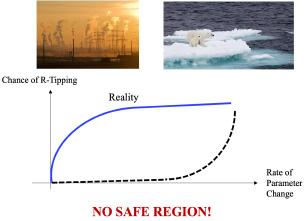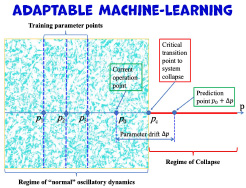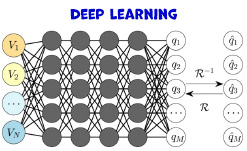COLLOQUIUM 2024
Predicting Tipping and Inverse Design of Quantum Scattering with Machine Learning
| Speaker | Ying-Cheng Lai, Arizona State University |
| Date/Time | Wednesday, 3 April, 3pm |
| Location | Conference room: S11-02-07 |
| Host | Prof Gong Jiangbin |
Abstract
A tipping point in complex and nonlinear dynamical systems is a transition from one stable steady state supporting the normal functioning of the system to another corresponding to system collapse, as a system parameter passes through a critical point. An urgent problem with potentially dire consequences is the possible collapse of the Atlantic Meridional Overturning Circulation (AMOC) that supports mild and livable temperature conditions in Western Europe. The speaker’s group at ASU has developed an adaptable machine-learning framework to predict tipping in noisy dynamical systems with a time-varying parameter and tested it on a number of systems including the AMOC. The prediction results based on simulated fingerprint data and real data of the sea surface temperature place the time window of a potential collapse of the AMOC between the years 2040 and 2065.
Time permitting, applications of deep learning in inverse design of quantum scattering systems will be briefly discussed.




Biography
Ying-Cheng Lai is a Regents Professor, the ISS Endowed Professor of Electrical Engineering, and a Professor of Physics at ASU. He received the PECASE award in 1997 from the White House and has been a Fellow of the American Physical Society since 1999. In 2016, he was selected by the Department of Defense for the Vannevar Bush Faculty Fellowship. In 2018, he was elected as a Foreign Member of National Academy of Science and Letters of Scotland. In 2020, he was elected as a Foreign Member of Academia Europaea (The Academy of Europe) and as a Fellow of the American Association for the Advancement of Science (AAAS). His current research interests are Machine Learning as applied to Nonlinear and Complex Dynamical Systems, Relativistic Quantum Materials, Quantum Information Science, and Mathematical Biology.
